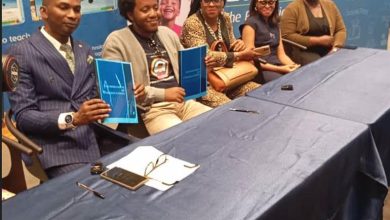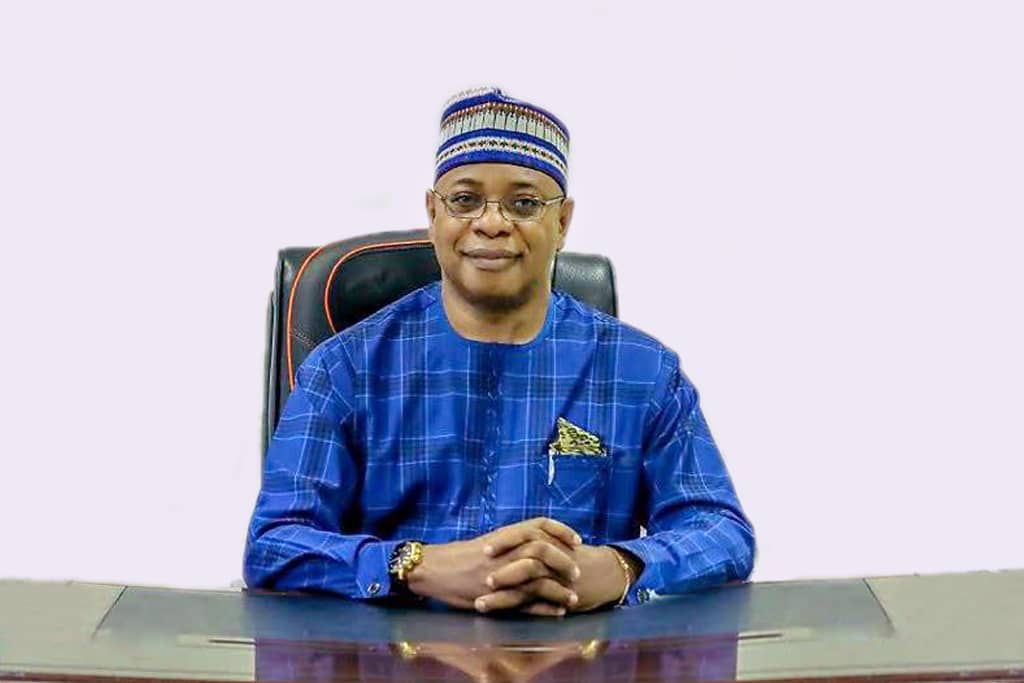
The Secretary General, Maritime Organization of West and Central Africa (MOWCA), Dr. Paul Adalikwu says that the growth of intra-africa trade under the African Continental Free Trade Area (AfCFTA) agreement depends on the ability of African States to increase the availability, efficiency, capacity and safety of their maritime transport systems.
According to him, the continent’s maritime industry is grossly under-utilised, and for it to achieve the AfCFTA aspirations, governments of member States must create enabling environments for movement of goods and persons through tax rebate incentives and lower interest rates to African Shipowners for acquisition of ships.
Adalikwu, during his presentation on “Transport and Logistics to Unlock the One Africa Market” at the AfCFTA Business Forum in Cape Town, South Africa from 16-19, April, 2023, explained that these approaches will open up the space for African continental trade to thrive.
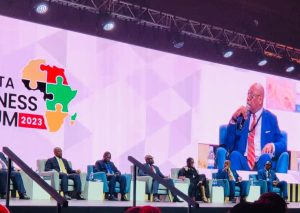
His words: “For varied reasons such as volume, safety, security, cost effectiveness etc, maritime has been adjudged the most effective and efficient way of conveying import and export trade items around the globe thus accounting for the growth in GDP of nations. It is estimated as at 2022 that Africa has a population which is just over 1.4 billion people. The Continent is endowed with such natural resources as land, maritime domains and its vast resources, huge untapped agricultural and mineral resources enough to sustain its own economy.
“No wonder the World Bank estimates that AfCFTA could boost continental income by up to USD450 billion and lift close to 30 million people out of extreme poverty and bring about sustainable development. Also the Economic Commission for Africa (ECA) estimates that, with the implementation of AfCFTA, 132 million tons of cargo will be transported by 2030. AfCFTA would require about 126 vessels for bulk cargo and 15 vessels for container cargo.
“There will also be need to address the myriad of challenges in the maritime sector ranging from funding, high freight rates, poor turnaround time in cargo clearance, inadequate storage capacities, low fleet ownership, tariff and non-tariff barriers, banditry, safety, insecurity, absence of ship building and ship recycling, human capacity building such as training and employment of cadets, weak legal frameworks in the areas of monitoring and control of illegal fishing, development of ports infrastructure so as to build strong vibrant maritime ecosystems among others.
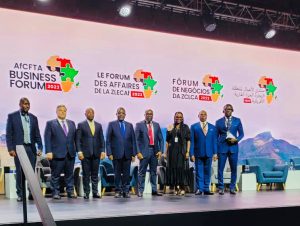
He continued: “For a continent endowed with about 48,000 kilometers of coastline, shared among 38 coastal States including critical routes like the Suez canal and the Gulf of Guinea (GoG) that carries a reasonable percentage of global trade, and for a maritime industry which is grossly under-utilised to live up to the billing of the AfCFTA aspirations, governments of member States that have signed into the agreement must create sincere enabling environment for the simplification of coastal, intra and inter Africa movement of goods and persons through tax rebate incentives and lower interest rates to African Shipowners for acquisition of ships.
“The Nigerian government in 2003 enacted the Cabotage Act to restrict the use of foreign vessels in domestic coastal trade, promote the development of indigenous tonnage and to establish a Cabotage Vessel Financing Fund (CVFF) which is designed to enable Nigerians acquire indigenous tonnage. This fund is yet to be allocated to garner vessel financing. This is the kind of needed interventions from governments of member States for the private sector to play active role in ship acqusition which will enhance the desired participation.
“This imminently means that a majority of the vessels plying the Nigerian waters are foreign owned but enjoying Cabotage waivers. This is certainly not healthy for the aspirations of AfCFTA as it even denies the States the economic benefits that accrue to vessels ownership”.
Adalikwu pointed out that the major reason for the establishment of the Regional Maritime Development Bank (RMDB) by MOWCA is to provide the needed financial base, and called for its urgent launch, as it fits into the AfCFTA objectives.
He commended the port infrastructural developments strategies of the African Development Bank (AfDB) and tasked the African Export–Import Bank, (AFREXIMBANK) to take strong initiatives in the development of the maritime sector.
The MOWCA SG noted further that the opportunity created by AfCFTA will not benefit Africa if sufficient attention is not paid in designing regulations that will attract indigenous tonnage.
“Whilst the AfCFTA provisions seem to have given preference to flagging as a solution to carrying goods generated by AfCFTA, this choice might fail to produce the vibrant shipping sector desired by the African Maritime community hence the need to encourage indigenous African ship ownership.
“It only reinforces the prevalent practice of ships registration already contained in most legislations which has so far benefited a few countries like Liberia and left the majority wanting. They seldom pay sufficient attention to other opportunities which are essential to a sustainable and resilient maritime transport system.
“Parallel to the increase of cargo, the maritime industry in Africa will experience a significant development in sea related activities”, he said.
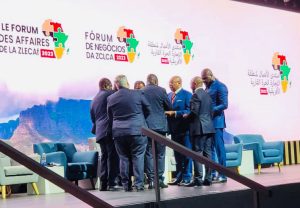
Adalikwu listed the maritime professional services to be impacted by AfCFTA to include: ship building, seafaring, ship/cargo broking, ship recycling, financial services, maritime consultancy – recognised organisations, surveyors, maritime insurance and maritime legal service.
He explained that with the advent of AfCFTA, Africa could be on the cusp of a period of rapid economic change, but highlighted a number of actions that must be taken for the African maritime industry to benefit from it.
They are: review of the tonnage tax regime to remain fiscally attractive to the global shipping and maritime community; partnership between government and industry to ensure that African countries can be proactive in their response to change, opportunity and challenge, and the modernisation of maritime infrastructure to facilitate trade flows.
He added that the impact of autonomous vessels may in the long term further reduce seagoing staff, engendering changes in the desired skillsets of industry professionals, noting that Maritime Institutions should be ready for this change.
While calling on the AfCFTA secretariat to lead the charge for indigenous vessels ownership, the MOWCA scribe stated that the place of safety and security of trade goods from such maritime criminalities like armed robbery at sea, piracy, kidnapping, Illegal Unreported and Unregulated Fishing (IUU) among others should not be undermined.
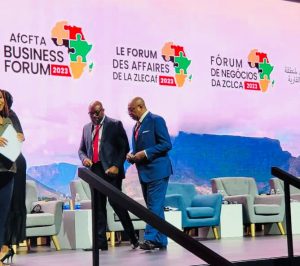
“Thankfully some member States in the West and Central Africa sub region have enacted enabling laws to prosecute maritime criminals. MOWCA is proposing a conference on the harmonisation of the laws of these countries namely Nigeria, Togo and Cameroun in such a way that it becomes operational in all member States.
“Finally, I will conclude by advocating, that if this trade agreement is tended towards African full participation in the circle of the Continental trade, which thrives heavily and conveniently on maritime transportation in serving the needs of both coastal and landlocked States, this will be the time to call on AfCFTA to lead a voice on the clamour for indigenous vessels ownership”.







